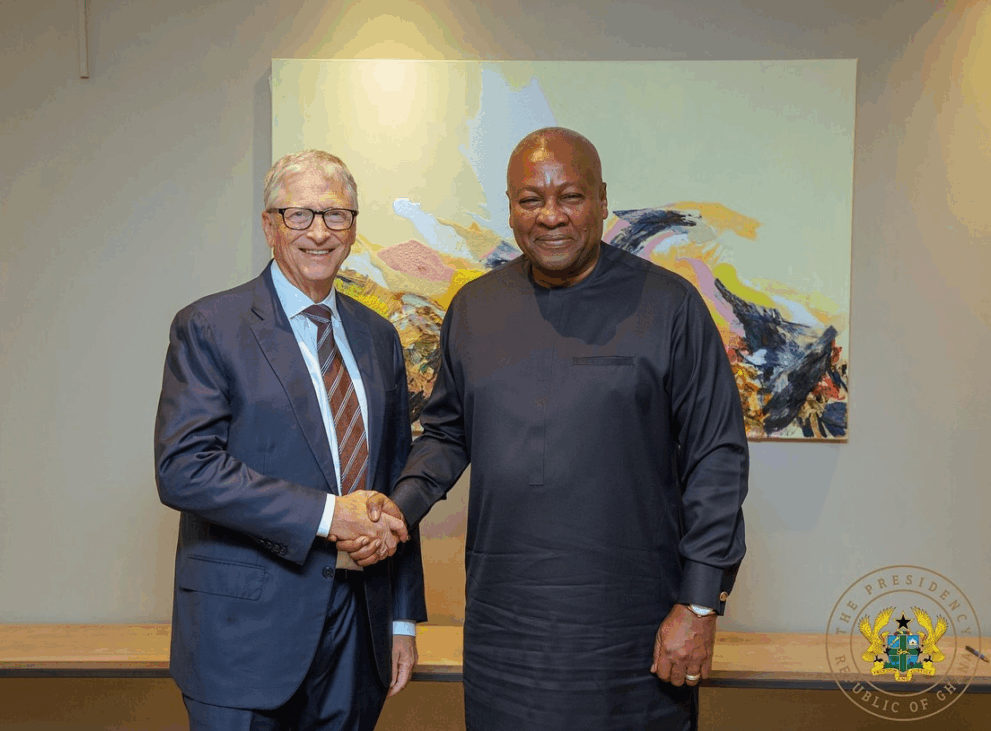On 24 June 2025, President John Mahama held a pivotal meeting with philanthropist Bill Gates in Brussels, marking a significant moment for Ghana’s ongoing health-sector reforms and its role on the global immunization stage. Convened on the eve of the Gavi Vaccine Alliance’s pledging session, the dialogue zeroed in on strategies to expand access to quality care in Ghana through domestic policy innovations and international partnerships.
President Mahama described his conversation with Bill Gates as “productive,” underscoring their shared commitment to scaling up interventions that enhance the delivery of essential health services. In a post on his official Facebook page, His Excellency, President Mahama, highlighted three core areas of discussion:
1. The Free Primary Healthcare programme, which aims to eliminate user fees for outpatient services at public facilities.
2. The establishment and operationalization of the National Vaccine Institute, envisioned as Ghana’s central hub for vaccine research, regulation, and distribution.
3. The uncapping of the National Health Insurance Fund (NHIF)—a fiscal reform that allows surplus revenues to flow directly into frontline care and chronic-disease management, rather than remaining idle in reserve.
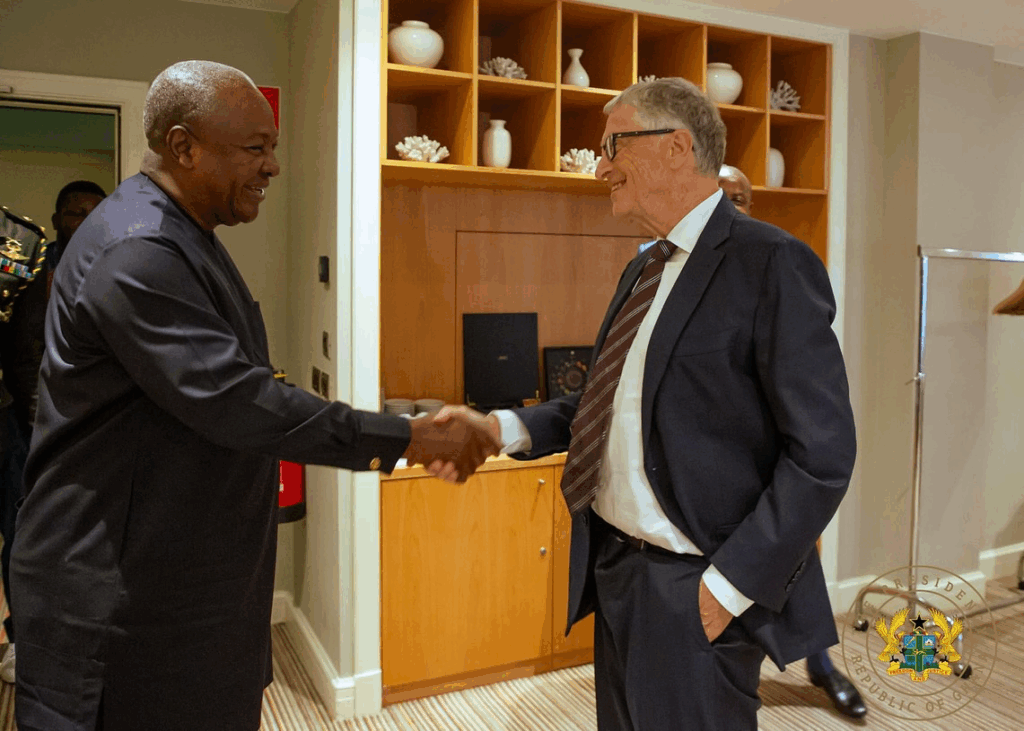
By spotlighting these reforms, His Excellency, President Mahama, emphasized Ghana’s dual approach in strengthening domestic health financing mechanisms while deepening collaborations with global actors.
“ These meetings underscore the importance of international collaboration and sustained investment in health systems to build a healthier future for all "
President Mahama
Launched in late 2024, the Free Primary Healthcare programme represents a cornerstone of President Mahama’s health agenda. By abolishing point-of-service charges for consultations, basic diagnostics, and essential medicines at public primary-care facilities, the policy seeks to remove financial barriers that disproportionately affect low-income and rural communities.
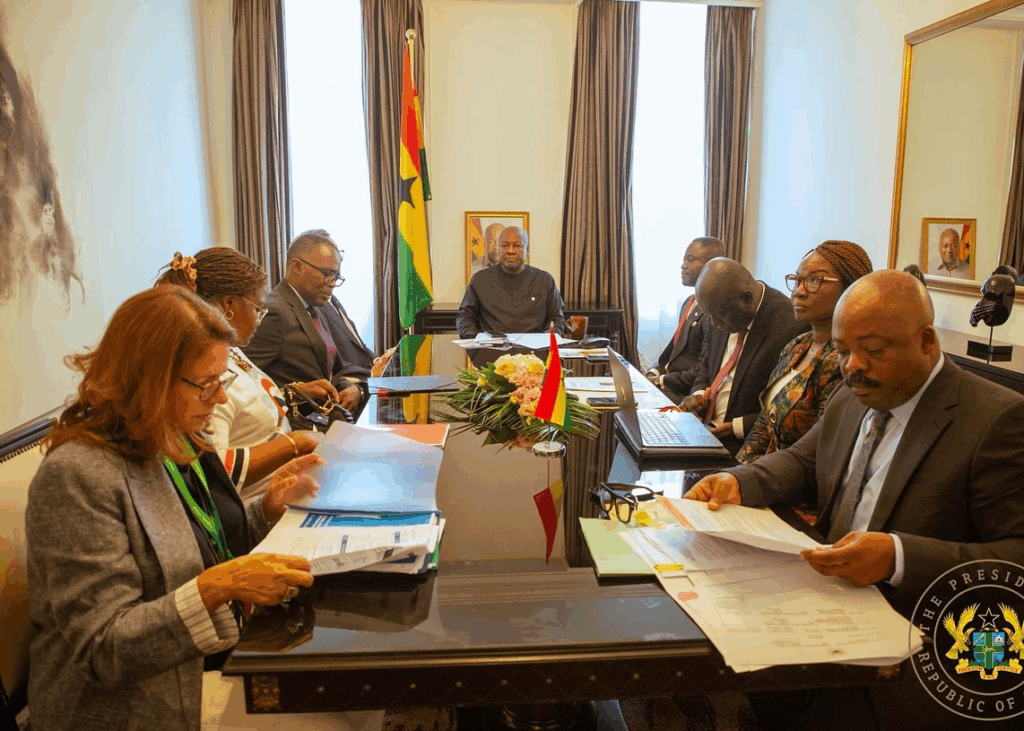
Early reports from the Ministry of Health indicate a 20 percent uptick in outpatient attendance at district hospitals and Community-based Health Planning and Services (CHPS) compounds since fee abolition. This surge suggests that removing cost burdens can drive care-seeking behavior, but it also raises questions about facility capacity; chief among them, whether staffing, drug-supply chains, and diagnostic services can keep pace with growing demand.
With Ghana’s plan to stand up a National Vaccine Institute (NVI), with the aim to anchor the country’s long-term vaccine security, the NVI is expected to house regulatory authorities, quality-control laboratories, procurement offices, and cold-chain management units.
By centralizing these functions, Ghana hopes to accelerate vaccine registration, reducing delays between World Health Organization pre–qualification and local availability. The NVI also seeks to coordinate bulk purchasing and stockpiling to guard against global shortages and price shocks. The third goal of the NVI is to foster local research on Ghana-specific vaccine needs, such as innovations targeting meningitis, rotavirus, and emerging zoonotic threats.
President Mahama’s engagement with the American Billionaire, whose foundation has invested billions in vaccine R&D and delivery, reflects Ghana’s intent to marry local capacity building with proven international expertise. It is quite the evidence in Ghana’s 2025 budget which lifted the statutory cap on NHIF spending; redirecting surplus funds from the National Health Insurance Levy (NHIL) toward front-line services.
Previously, the NHIF was constrained by a ceiling that prevented excess revenues from financing expanding benefit packages or new care initiatives. “The uncapping of the NHIS is already improving healthcare access and financing in Ghana,” President Mahama affirmed, calling the reform a decisive step toward financial sustainability and service expansion.
Under the new arrangement, the NHIF could allocate revenues to Mahama Cares, a trust fund dedicated to high-cost, chronic-disease services such as dialysis, stroke rehabilitation, and cancer treatments. The NHIF could also spend revenues on performance-based top-ups for primary-care facilities that achieve key indicators such as immunization
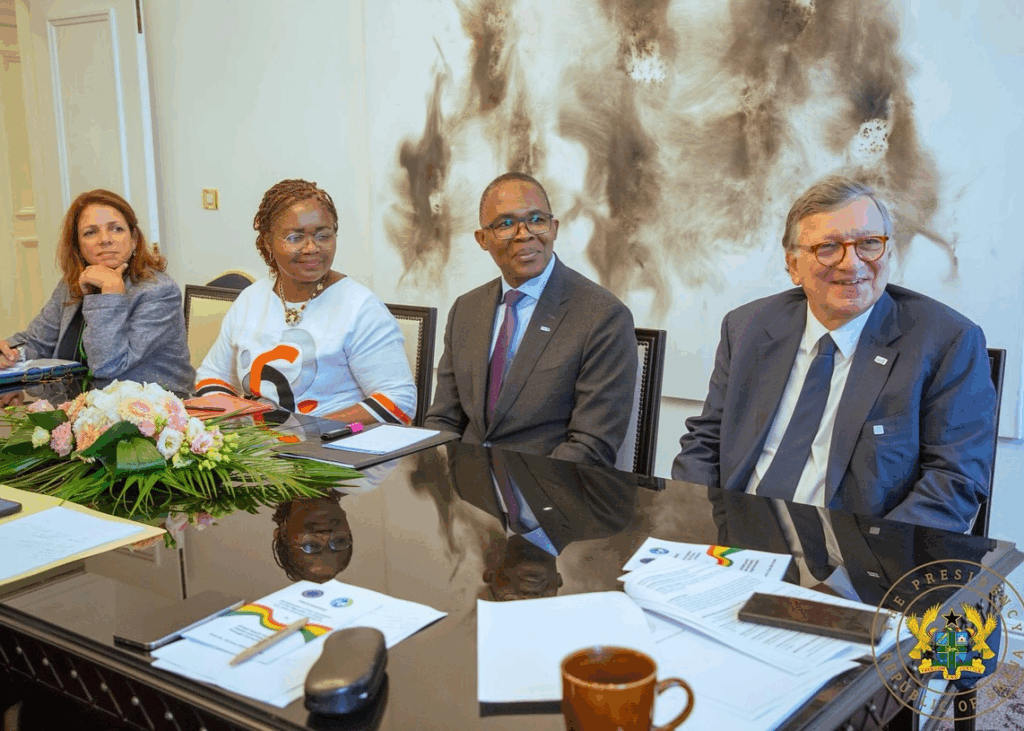
coverage, antenatal attendance, and hypertension control rates. The NHIF is also free to assign resources to risk-sharing mechanisms with private-sector providers, enabling public–private partnerships in under-served regions. The Ghanaian Finance Ministry projections estimate that NHIF uncapping could free up GH₵2.4 billion over the next three years—resources that would otherwise remain dormant, thereby buttressing Ghana’s push toward universal health coverage.
Under the new arrangement, the NHIF could allocate revenues to Mahama Cares, a trust fund dedicated to high-cost, chronic-disease services such as dialysis, stroke rehabilitation, and cancer treatments. The NHIF could also spend revenues on performance-based top-ups for primary-care facilities that achieve key indicators such as immunization coverage, antenatal attendance, and hypertension control rates.
The NHIF is also free to assign resources to risk-sharing mechanisms with private-sector providers, enabling public–private partnerships in under-served regions. The Ghanaian Finance Ministry projections estimate that NHIF uncapping could free up GH₵2.4 billion over the next three years—resources that would otherwise remain dormant, thereby buttressing Ghana’s push toward universal health coverage.
The Gavi Vaccine Alliance pledging session, scheduled for early July 2025 brought together heads of state, donor agencies, and private philanthropies to secure funding for immunization programs in low- and middle-income countries through 2030. As both a beneficiary of Gavi support and an emerging advocate for continental vaccine manufacturing, Ghana occupies a unique position.
Ahead of the conference, President Mahama reaffirmed Ghana’s commitment to the Alliance’s mission: “Supporting an organization that is doing such crucial work for global health is always a pleasure,” he told José Manuel Barroso, Chair of the Gavi Board and former President of the European Commission. Barroso, in turn, thanked him for his long-standing support for Gavi’s vaccine replenishment campaigns, highlighting Ghana’s dual identity as a partner in funding and policy leadership.
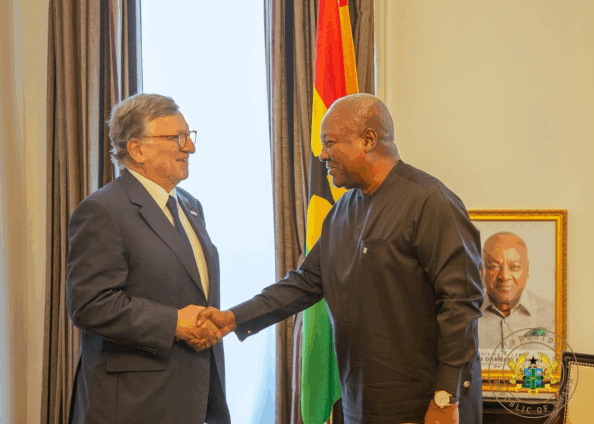
Since 2000, the Bill & Melinda Gates Foundation has channeled over US $200 million into Ghanaian health initiatives; spanning malaria control, maternal and child health, and local research collaborations. In their Brussels meeting, Mr. Gates and President Mahama explored opportunities to leverage digital health tools (mobile registration for
NHIS, electronic immunization registries) and to scale up Ghana’s genomic-sequencing capacity, critical for monitoring pathogen evolution and vaccine effectiveness.
President Mahama’s high-level talks in Brussels signal Ghana’s readiness to operationalize ambitious health reforms with the backing of global partners. Yet translating commitments into outcomes will require robust implementation frameworks that assign clear responsibilities and performance metrics for Free Primary Healthcare, NVI start-up, and NHIF expansion.
There’s also a call for transparent governance structures to monitor fund disbursement, prevent leakages, and ensure equitable distribution across Ghana’s 16 regions. Community-engagement strategies are also a considerable requirement in building public trust, crucial for sustaining immunization uptake and NHIS enrollment.
If executed effectively, Ghana’s model, anchored in policy innovation, fiscal reforms, and strategic partnerships, could serve as a blueprint for other African nations grappling with similar health-system challenges.

